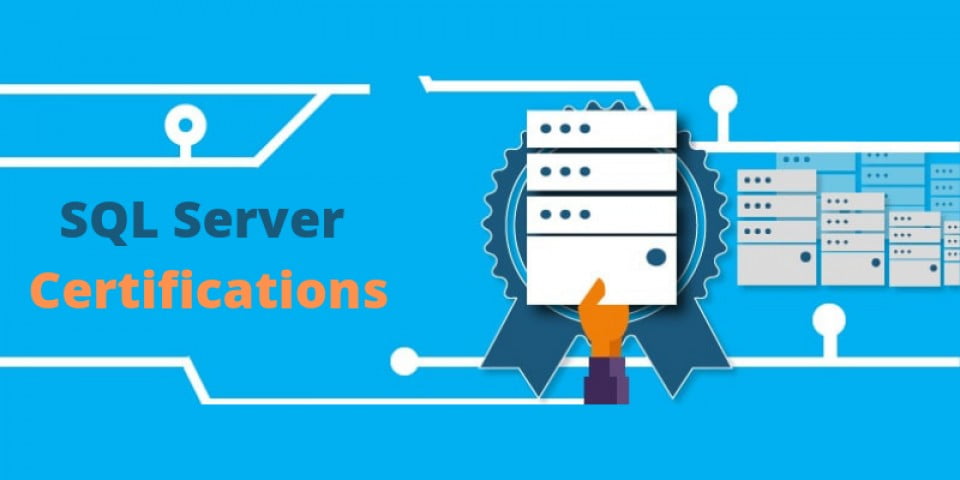Ways to Get Hands-on Experience with SQL

SQL or Standard Query Language is one of the primary programming languages used to communicate with relational databases. Its most basic commands are either to add, update, and retrieve data from a particular database. The benefits of utilizing SQL prove to be invaluable in several industries that require consistent data update and retrieval.
As a matter of fact, SQL is a standard in several large organizations, including the American National Standards Institute (ANSI) and the International Organization of Standardization (ISO). With the widespread knowledge about its utility, learning SQL is also accessible to those who are interested.
Learning it isn’t limited to one or two industries either. It is open to everyone willing to use this programming language to make their industry methods more efficient.
Moreover, there are several claims stating that learning SQL is more accessible through hands-on experience.
If you are interested in learning this data communication language, here are some ways to get some hands-on experience on using it.
Ways to Get Hands-on Experience with SQL
Follow Online Tutorials
If you want to learn the language without spending on it, then online tutorials are the best option for you.
But, to have hands-on experience, you need to take the extra step of installing a free SQL database. MySQL is a free database that is compatible with most operating systems. With a free database, you can apply your learning from the tutorial to real-life simulations immediately.
The online library for free SQL tutorials provides a vast selection of lessons. From learning from basics down to refreshers, they are one of the most accessible options. Technology giant Microsoft even provides free tutorials along with other Microsoft Office tutorials about their database.
Microsoft Office courses provide step-by-step processes on how to navigate specific applications. Their online tutorials about SQL, however, provide an in-depth introduction to the said topic and discuss various industry-specific terminology.
Aside from the introduction, the tutorials mentioned above also discuss a wide array of concepts and necessary skills associated with them.
There are also SQL training videos that introduce an interactive approach to learning the programming language. These hands-on tutorials are the best learning methods for SQL certification tests. These are also the most similar hands-on experience to the certification program.
Enroll in Online Training Camps
As the world is learning more about the importance and value of data science, more people are also itching to learn about relational databases and their accompanying language, SQL.
Industry leaders usually offer SQL training camps to train more people about the inner workings of data science. At most, it appeals to data scientists, analysts, software engineers, managers, and basically anyone who wants to be more well-versed about data.
These training camps go over the basics of the programming language per se. It also discusses the server fundamentals and the server toolbox. The sessions during these camps are a mixture of discussions and hands-on activities. Most activities are guided, and immediate feedback is given before moving on to another session. This method is especially effective for participants who are considered beginners in the industry.
After the run of this training camp, the participants can navigate and make sense of the language without a professional’s guidance.
Moreover, training camps are effective for learning with hands-on experience on SQL because it offers specialized classes. Different sets of training sessions are according to the user’s current level of expertise. There are sessions for beginners and experts who want to supplement their existing knowledge in the field.
Of course, these camps also have specialized sessions that focus on particular niche topics of the field. These sessions also attract a specific group of participants. An advanced class about data analytics may appeal more to business managers and marketers as compared to data scientists.
Enrolling in these training camps is one of the easiest ways to gain an on-hand experience with SQL. It is an investment that both freelancers and corporations look into to upgrade their skill set continually.
Engage With Free SQL Classes
If you are a bit hesitant to join training camps with other people, you might be more inclined to enroll in free online classes. Unlike the training camps, you can take these classes at your own will and pace, as most of these are recorded clips. Several sites and companies offer these classes too. You can choose the most suitable one for you conveniently.
And because of the abundance of these online classes, you can even choose the mentor you want to learn from. Prominent names in the industry have put out at least a class or two about the basics of SQL on different online platforms.
If you are new to the industry and have limited knowledge, make sure to go through with the introductory classes first. Understand the goals and different uses of the programming language.
Apart from that, don’t look past the lessons about developing your SQL databases. Learning this will help you in your future endeavors with SQL, as this is one of the fundamentals of this language.
Lastly, don’t forget to take on classes about how to analyze the data in various databases. Even if you are a part of a specific industry, it’s best to learn how SQL is used in other enterprises to understand the depth of its functionality fully.
More than that, understanding the data makes it easier to translate it into actionable plans. Take data analytics in marketing, for example. The series of data will not bring much of a benefit to the marketing team if the interpretation is wrong or far-fetched. It will only cause unnecessary extra steps and costs for the team.
Earn that Certification
Lastly, to land SQL programming-related jobs easily, get certified. Employers and clients will not drop you on the spot once you tell them that you know SQL. You need to show them that you do, using an official SQL certification.
This language has several distinct areas in which you can specialize in. There’s a certification program for the use of SQL in big data. There are also separate ones for the basic and advanced levels of SQL for data scientists.
The good thing is you can certify for any or all of these fields. In this way, you can further hone and expand your skillset. An extensive skillset will definitely impress employers, proving to them that you know your way with the language. And if you prefer to do freelance work, these certifications will surely pique the interest of potential clients.
To earn certifications, you need to go through courses and exams that will cost a significant amount of money. But, think of this as an investment for your career in the industry. Employers often look for certifications to consider you as a potential employee in their organization.
As of present, most employers consider Microsoft SQL certifications to have more weight over the other certifications. Aside from Microsoft or MS Azure certifications, Google and Oracle also have their own certification courses and tests.
Final Takeaways
Standard Query Language or SQL is becoming a major programming language among several industries because of its flexible and practical uses. Its focus on data use, update, and retrieval makes it relevant for most businesses, especially now that most are using cloud-based software suites.
As the demand for it increases, more people are inclined to learn the language. From novice learners who want to dive into the topic out of interest down to those who need to learn it for their profession, there are various ways on how to learn it through hands-on experience. Whether you learn better with a team or alone, there is a method fit for you.






